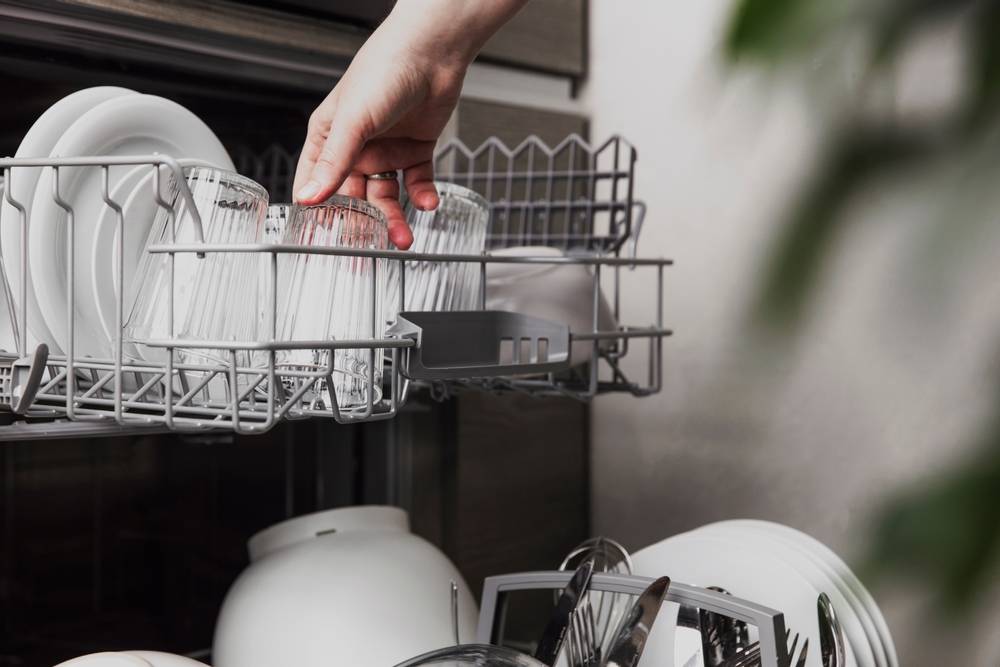Impact of Dishwasher Detergents on Gut Health
A recent study has revealed that dishwasher detergents damage the gut barrier, leading to potential health risks.
The gut epithelial barrier is crucial for defending against harmful substances and regulating nutrient absorption. However, exposure to dishwasher detergents and rinse aids, particularly those containing alcohol ethoxylates, can disrupt this barrier, causing inflammation and increased permeability.
How Dishwasher Detergents Affect the Gut Barrier
The gut epithelial barrier relies on tight junction (TJ) proteins to control the passage of molecules between cells. These proteins form a complex network that maintains the integrity of the gut lining, preventing harmful substances from entering the bloodstream while allowing nutrient absorption. When dishwasher detergents damage the gut barrier, they disrupt these tight junctions, leading to increased permeability and inflammation. The study showed that exposure to rinse aids led to a significant decrease in transepithelial electrical resistance (TEER) by up to 50% and an increase in paracellular flux, indicating compromised barrier integrity.
Researchers used Caco-2 cells, a well-established model for human intestinal epithelial cells, to study the effects of dishwasher detergents and rinse aids. These cells were grown on permeable supports to mimic the gut environment. When exposed to rinse aids, the Caco-2 cells showed irregular and heterogeneous staining of tight junction proteins such as occludin (OCLN) and claudin-1 (CLDN1), which are crucial for maintaining the barrier.
The study identified alcohol ethoxylates, a common component in rinse aids, as the primary cause of the damage. Researchers tested individual components of the rinse aids separately and found alcohol ethoxylates exhibited strong cytotoxic and barrier-damaging effects. These effects included cell detachment and membrane breakdown.
Experimental Findings
Moreover, immunofluorescence staining revealed that the structure and localisation of tight junction proteins such as occludin (OCLN) and claudin-1 (CLDN1) were disrupted by exposure to rinse aids. The staining showed irregular and heterogeneous patterns, which are indicative of tight junction breakdown. These findings were consistent across various experimental setups, including liquid-liquid interface cultures, organoids, and gut-on-a-chip models, demonstrating the robustness of the observed effects.
These experiments collectively confirmed that dishwasher detergents damage the gut barrier. Alcohol ethoxylates in rinse aids being the primary contributors to this effect. The disruption of tight junctions, increased permeability, and cytotoxic effects highlight the potential health risks associated with exposure to these common household products.
Long-Term Effects of Gut Barrier Damage
When dishwasher detergents damage the gut barrier, they allow harmful substances and bacteria to pass into the bloodstream. This triggers chronic inflammation. This inflammation can contribute to the development of chronic diseases, including inflammatory bowel disease (IBD), obesity, and allergies. The “Epithelial Barrier Hypothesis” suggests increased exposure to barrier-damaging agents, such as dishwasher detergents, is linked to the rise in these diseases.
RNA-sequencing (RNA-seq) and targeted proteomics analyses revealed significant changes in gene expression and protein levels related to inflammation and barrier integrity. For example, exposure to rinse aids at a 1:10,000 dilution upregulated genes involved in cell death, immune responses, and inflammation. These included cytokines like interleukin-8 (IL-8) and chemokines like CXCL1, which are markers of inflammation. Additionally, genes associated with epithelial cell development and response to toxic substances were significantly altered. This suggests that chronic exposure to these detergents can disrupt normal cellular processes and promote an inflammatory environment.
The study also highlighted that even lower concentrations of rinse aids altered gene expression and protein levels associated with barrier function and immune responses. Even sub-toxic levels of exposure can have long-term effects on gut health, potentially leading to chronic conditions over time.
Professional vs. Household Dishwashers
Professional dishwashers, used in public food areas such as restaurants, schools, and hotels, leave significant rinse aid residue on dishware. Consumers ingest this residue with food, posing a risk to gut health. The study showed residues from professional dishwashers retained their cytotoxic and barrier-damaging effects even after the dishware dried. When researchers extracted dried rinse aid residue from dishware and applied it to Caco-2 cells, they observed significant cell death and barrier disruption at dilutions as high as 1:10.
TEER and paracellular flux measurements confirmed these residues impaired the gut barrier. The TEER values decreased by more than 40%, and the FITC-dextran passage increased, indicating heightened permeability. This suggests the residual rinse aid on dishware can damage the gut barrier upon ingestion.
Household Dishwasher Safety
Household dishwasher detergents were also tested for their cytotoxic effects on gut epithelial cells. While household detergents were found to be toxic at certain concentrations, the typical dilution used in household dishwashers (1:80,000) did not elicit cytotoxicity in Caco-2 cells. This suggests that, with proper rinsing, household dishwashers may pose a lower risk to gut health compared to professional dishwashers.
Moving Forward
Further research is needed to explore safer alternatives to current dishwasher detergents and rinse aids. Understanding the mechanisms by which these substances damage the gut barrier can inform the development of less harmful cleaning agents. Public health policies should also consider the findings of this study to protect consumers from the adverse effects of dishwasher detergents on gut health.
References
1. Ogulur, I., Pat, Y., Aydin, T., Yazici, D., Rückert, B., Peng, Y., Kim, J., Radzikowska, U., Westermann, P., Sokolowska, M., Dhir, R., Akdis, M., Nadeau, K., & Akdis, C. A. (2023). Gut epithelial barrier damage caused by dishwasher detergents and rinse aids. the Journal of Allergy and Clinical Immunology/Journal of Allergy and Clinical Immunology/the Journal of Allergy and Clinical Immunology, 151(2), 469–484. https://doi.org/10.1016/j.jaci.2022.10.020

